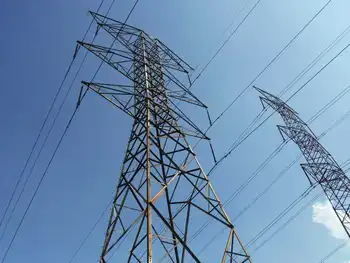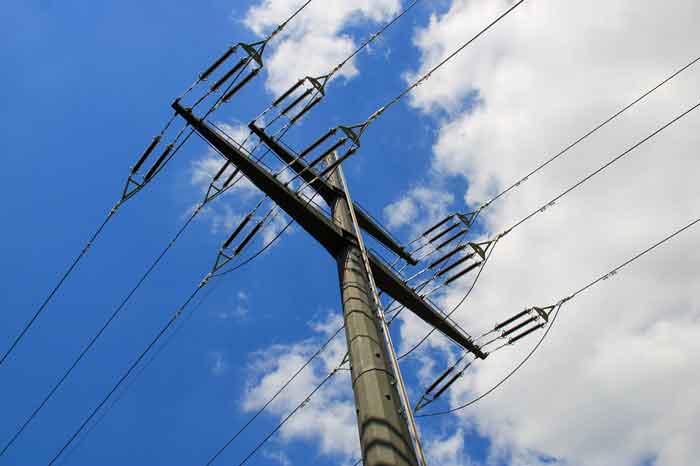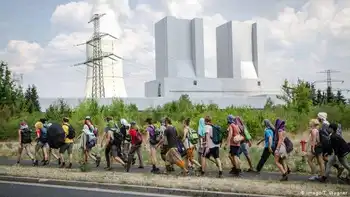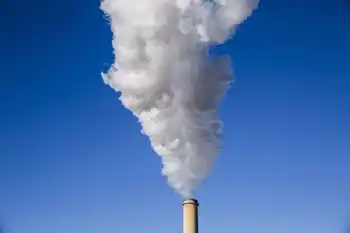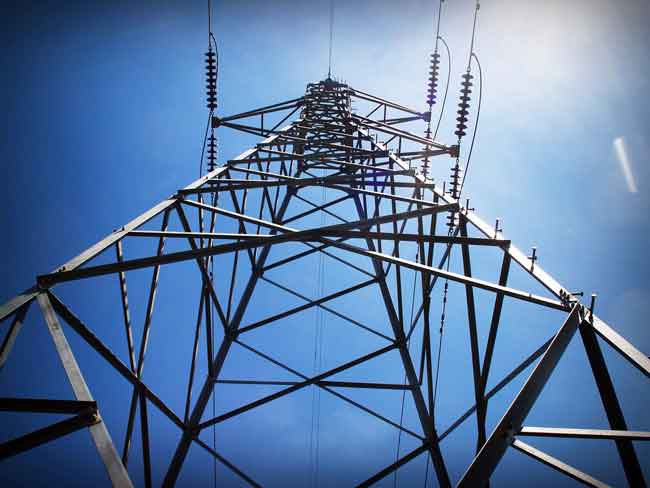Coal industry ‘pensive’ about Obama
By Associated Press
Arc Flash Training CSA Z462 - Electrical Safety Essentials
Our customized live online or in‑person group training can be delivered to your staff at your location.

- Live Online
- 6 hours Instructor-led
- Group Training Available
But the West Virginia Coal Association's president and others in the industry say they've received mixed messages about president-elect Barack Obama's support for coal-fired power.
Obama and vice president-elect Joe Biden both have said they support finding cleaner ways to burn coal. But during the campaign, Obama told a newspaper that electricity rates could soar under his energy plan, while Biden told a voter in Ohio that "we're not supporting clean coal" — though he has said the U.S. should develop clean coal technology and export it to China.
"I think there's a great deal of pensiveness," Raney said.
Others, including Obama's camp, say they see little reason to worry.
Obama comes from Illinois, a coal-producing state, and supported its bid for the FutureGen experimental coal-fired power plant that would store emissions of carbon dioxide — a heat-trapping gas blamed for global warming — underground. After the plant was awarded to Mattoon, Ill., the Bush administration and the U.S. Energy Department walked away, citing costs that had ballooned to $1.8 billion.
Some key Democrats are from coal states. Illinois Sen. Dick Durbin is the Senate's No. 2 Democrat. Ed Rendell, former chairman of the Democratic National Committee, is governor of Pennsylvania, a big coal producer and home to steel mills that rely on the ore.
"All of these people who are some of the strongest supporters of coal in the U.S. Congress and in the governor's office... have supported and worked hard for President-elect Obama," said Cecil Roberts, president of United Mine Workers, which endorsed Obama last spring. "And I don't think he's going to let those folks down."
Luke Popovich, a spokesman for the National Mining Association, a trade group that includes many of the nation's biggest mining-equipment makers, said he believes Obama will be pragmatic about the need to keep coal in the nation's energy mix.
"He presumably would be sensitive to the impacts of energy policies on the economy given the perilous state of the economy," Popovich said. "And he's certainly shown an exceptional ability to listen to and to hear what voters want, and what we think voters said they wanted was practical solutions."
Obama has said he recognizes coal's importance in powering the U.S., but achieving his ambitious emissions-cutting objectives hinges on finding more environmentally friendly ways of using coal to generate electricity. He has said his goal is to create five first-of-a-kind, coal-fired demonstration plants that would capture carbon emissions and store them underground "so they're not adding to global warming."
The president plays a pivotal role in shaping the nation's energy policy, naming top officials at the U.S. Environmental Protection Agency, Office of Surface Mining Reclamation and Enforcement and U.S. Army Corps of Engineers. And on Capitol Hill, Democrats have padded their majorities in both chambers.
"So when the music stops, who will be chairing the various committees with jurisdictions over coal? That will also be critical," Popovich said.
Some of that jockeying on Capitol Hill already is under way.
Democrats steered the House toward more aggressively tackling global warming and other environmental problems, tapping California liberal Henry Waxman to head the House's Energy and Commerce panel.
An avid environmentalist and booster of health care programs, Waxman replaces Michigan Rep. John Dingell, an old-school supporter of Detroit's carmakers and other big industries such as electric utilities. Waxman is expected to move legislation with tougher emissions standards than Dingell would have.
Well before that, Waxman and other powerful Washington voices, including Senate Majority Leader Harry Reid, lined up against coal-fired power, which churns out two billions tons of greenhouse gases annually. Waxman this year signed onto legislation that would ban any new coal-fired power plants built without technology to capture carbon dioxide.
Yet uncertainty lingers, often tied to Obama's statement to the San Francisco Chronicle's editorial board in January that his proposed cap-and-trade system to control greenhouse gases — which would set an overall emissions limit, then require polluters to buy allowances at public auction — would be "as aggressive if not more aggressive than anybody else's out there."
He also told the newspaper that electricity rates would increase, and coal-fired plants that did not reduce pollution could go bankrupt because of the costs of buying pollution allowances.
Obama's energy plan includes mandatory reductions of greenhouse gas emissions to 80 percent below 1990 levels by 2050. He also proposed a 10-year $150 billion fund for biofuels, wind, solar, plug-in hybrids, clean-coal technology and other "climate-friendly" measures, and would require utilities to produce 25 percent of power from renewable energy by 2025.
At St. Louis-based Peabody Energy, among the world's biggest coal producers, spokesman Vic Svec said "there is obvious cause for alarm when political leaders acknowledge that under onerous cap-and-trade bills that limit coal use, ‘electricity costs would skyrocket.’"
But Svec notes that Obama's comments to the San Francisco newspaper are nearly a year old, and that since then Obama dozens of times has voiced growing support for clean-coal technologies — including FutureGen, the project that includes Peabody as a potential partner.
"This may seem counterintuitive, but we are eager for the new administration in terms of their support for coal and their support for advancement of carbon capture and storage technology," said Svec, whose company fuels roughly one-tenth of all U.S. electricity generation and more than 2 percent worldwide.
Popovich, from the mining trade group, said he suspects that the faltering U.S. economy will make Obama reluctant to mess with "indispensable" King Coal.
"I would say there's some cautious — underscore cautious — optimism," he said. "You're not going to help the American economy by hurting coal production and coal utilization."





